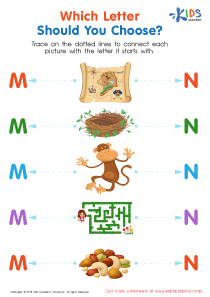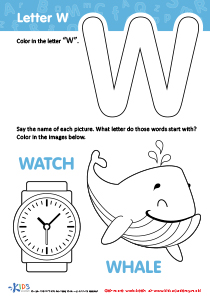Alphabet familiarity Normal Kindergarten Letter Recognition Worksheets
6 filtered results
-
From - To
Encourage your child's alphabet mastery with our Alphabet Familiarity Normal Kindergarten Letter Recognition Worksheets! Designed for young learners, these printable resources enhance letter recognition and early reading skills. Each worksheet features engaging activities like tracing, matching, and identifying letters to practice both uppercase and lowercase alphabets. Fun illustrations and creative exercises keep kids motivated while they build critical foundational skills. Perfect for classroom use or at-home learning, our worksheets align with kindergarten standards, ensuring your child gets a head start in literacy. Foster confidence and a love for learning with these effective, playful worksheets!
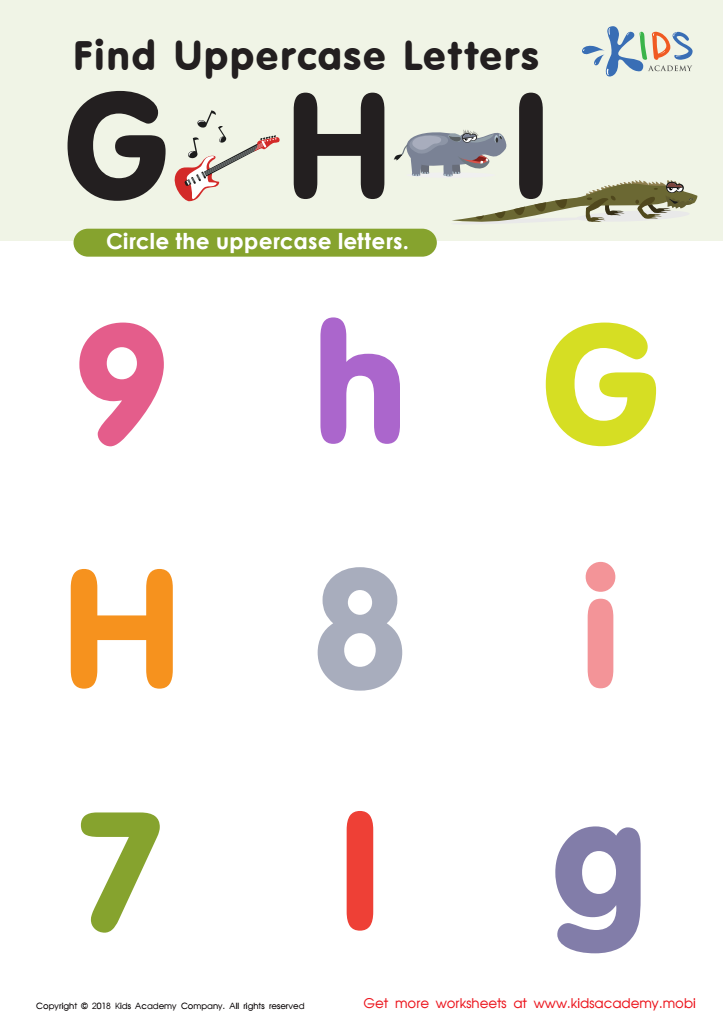

Find Uppercase Letters G, H, and I Worksheet
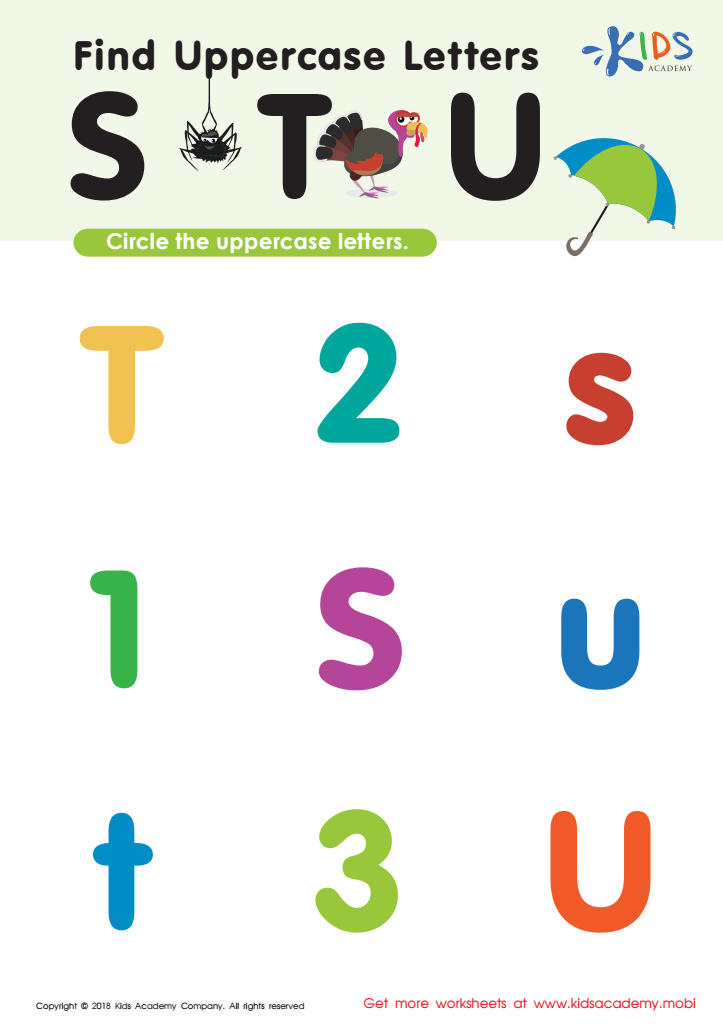

Find Uppercase Letters Worksheet
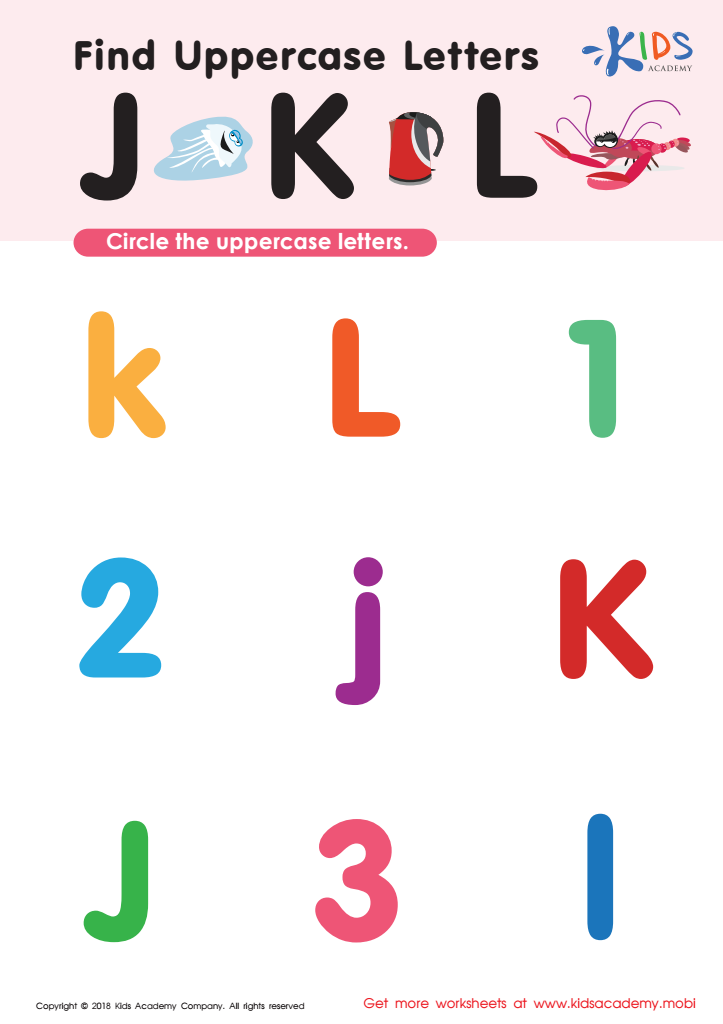

Find Uppercase Letters J, K, and L Worksheet
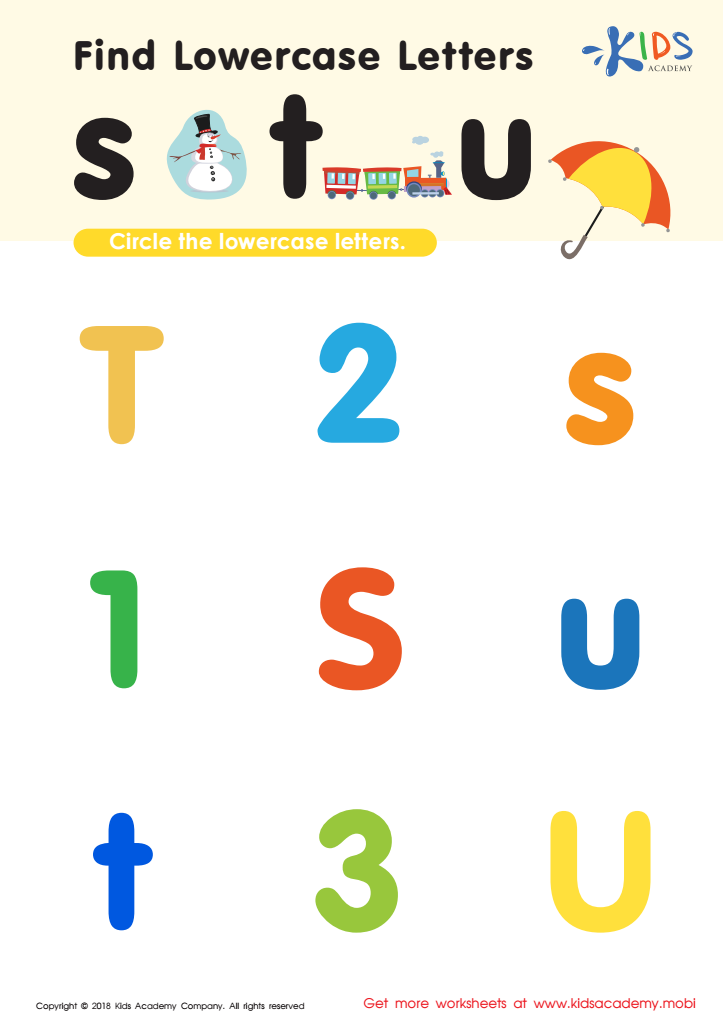

Find lowercase Letters s t u Worksheet
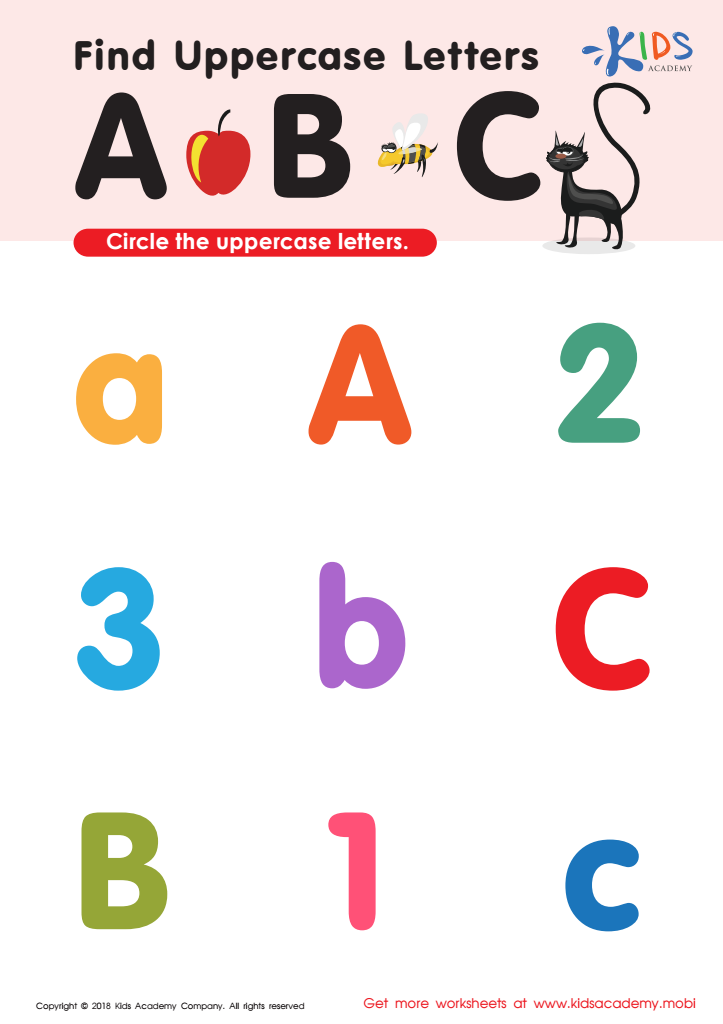

Find Uppercase Letters A, B, and C Worksheet
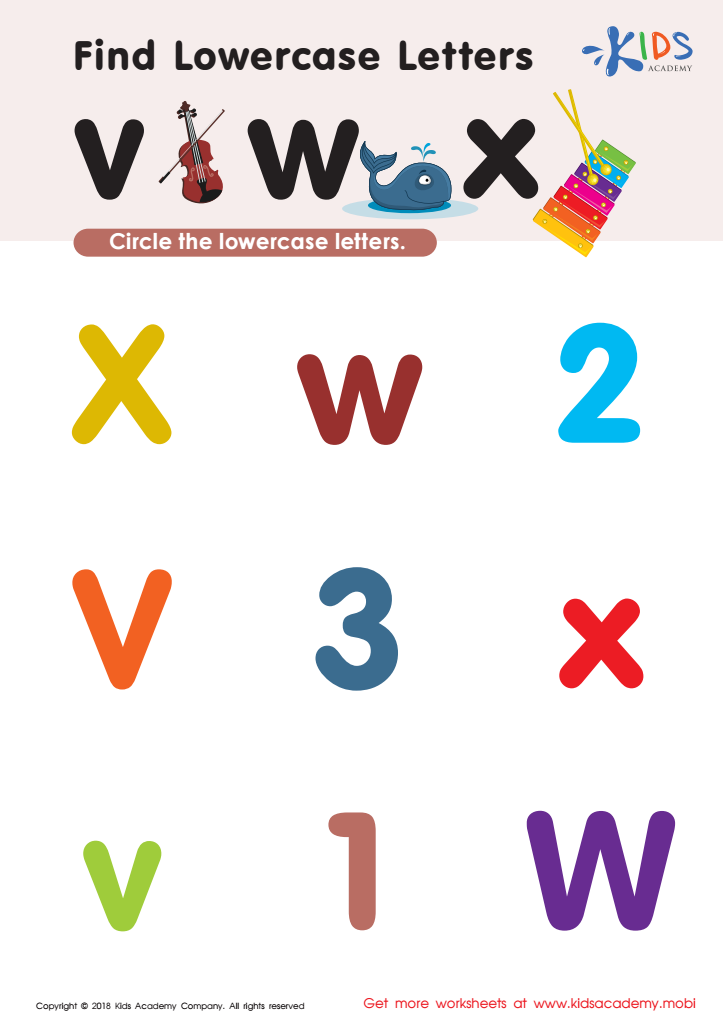

Find Lowercase Letters v w x Worksheet
Alphabet familiarity and letter recognition in kindergarten are foundational elements for a child's early literacy development. Parents and teachers should prioritize this learning area because it establishes a basis for essential reading and writing skills. Recognizing letters and understanding their associated sounds are the first steps children take toward phonemic awareness, which is crucial for decoding words as they begin to read.
Moreover, early mastery of the alphabet fosters children's confidence in their ability to learn and succeed in school. It paves the way for reading fluency and comprehension, allowing them to access diverse information and expand their vocabulary from a young age. Furthermore, being proficient in letter recognition helps children with writing, as they can easily identify and subsequently reproduce letters when they start to form words and sentences.
Parents and teachers play a pivotal role in providing children with rich, engaging literacy experiences—whether through reading books together, playing letter games, or practicing writing. These activities can significantly mitigate future academic struggles. Ignoring early alphabet familiarity can lead to challenges in recognizing and understanding written words, consequently affecting a child's academic performance and love for learning. Thus, investing time and resources into teaching alphabets in an engaging and supportive manner is crucial for a successful academic trajectory.

 Assign to My Students
Assign to My Students












